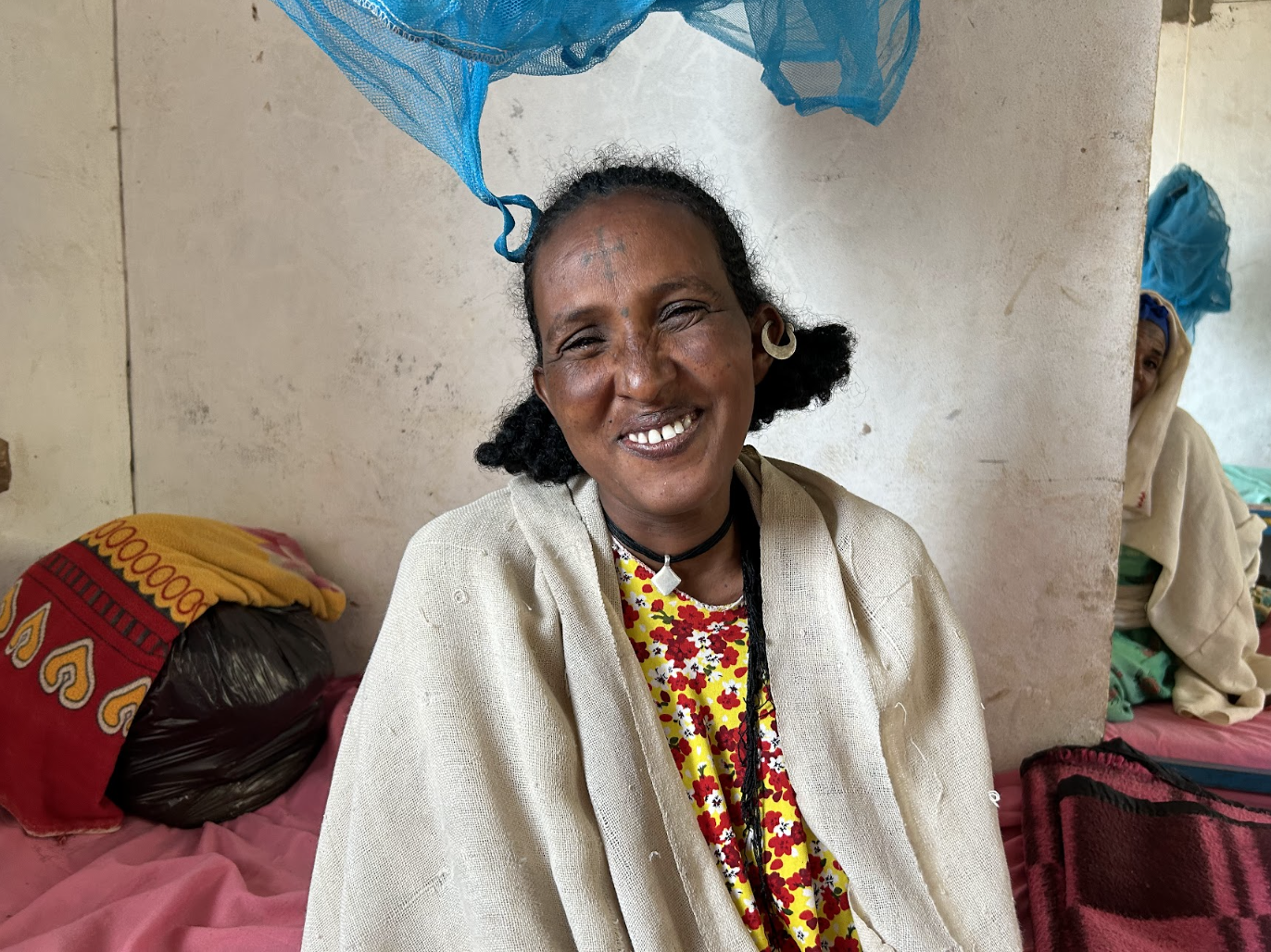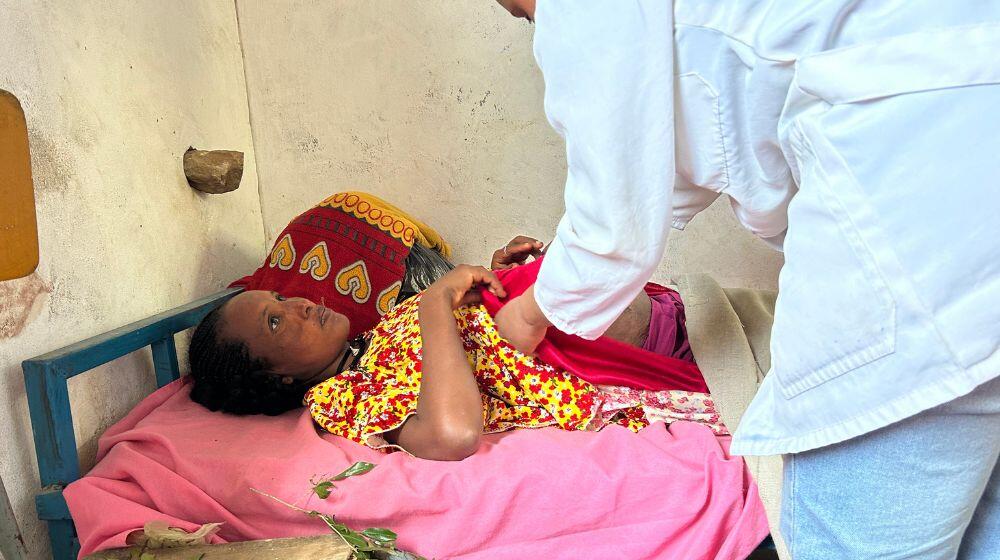Megab, Hawzen district, Eastern Tigray | Rigbe Gebresilassie (37) is one of the dozen women awaiting labor at the maternity waiting home in Megab. Rigbe is already the mother of seven children between the ages of 3 and 21. She and the other women at the maternity waiting home often discuss the war, motherhood, and pregnancy.
She says the war has been difficult for mothers. “I was nine months pregnant when the war broke out. We would hear rumours of soldiers and run into caves. Days later, we would receive news that they were gone, and we would stumble back home. It was a hard time’’.
Before the war, Rigbe says one of her children would call an ambulance when she went into labor. But damage to health facilities during the conflict made this impossible. “My youngest two children were born in health facilities, so I knew the benefit of giving birth at health centres; but where would you even find doctors at the time of the war?” says Rigbe.
Rigbe was fortunate to give birth to a healthy baby boy. But that was not the case for most mothers, says Dr. Meseret Kidanemariam, a general practitioner and coordinator for Maedot Aid at the health facility in Megab. “Most arrive haunted by the loss of a child during the conflict,” she says.
Dr. Meseret says the maternity waiting home in Megab was established just over a year ago. Research conducted by Mekelle University, the Regional Health Bureau, and the Tigray Health Institute with funding from UNFPA in May 2022 found that the district had one of the highest maternal mortality rates in the region, with a rate of 937 maternal deaths per 100,000 live births. This is significantly higher than the regional average of 840 and an almost five-fold increase from the pre-war status of 182 deaths per 100,000. This spike is owed to the destruction of more than 90 percent of health facilities in the region.
Dr. Meseret says maternity waiting homes are ideal for mothers such as Rigbe who don’t live near a health centre. Rigbe had to walk for almost three hours to reach the health facility. Maternity Waiting Homes are common residential facilities built in or near health facilities where pregnant women who are considered ‘high risk’ or those who live very far away from health facilities are admitted shortly before delivery, or earlier, for close medical attention. Studies in Ethiopia show that pregnant women who utilize maternal waiting homes are 80–91 percent less likely to die than their non-user counterparts. In addition, there is a 73–83 percent lower occurrence of stillbirth compared to non-maternity waiting home users.

The health facility where Dr. Meseret and her dedicated team work tirelessly is just one of seven maternity waiting homes established in Tigray by Maedot Aid, a local NGO, with funding from UNFPA. UNFPA's support extends to a total of nine maternity waiting homes across Tigray. Since 2021, these crucial establishments have witnessed the safe delivery of close to 6,700 mothers and their precious newborns. This was made possible with the partnerships of Canada, Irish Aid, and Italy.
When the health centre reopened again, Rigbe knew she had to make her way there to give birth. She came to the maternity waiting home almost a week earlier and is expecting to give birth any day now.
Maternity waiting homes in Tigray are designed to provide comprehensive sexual and reproductive health (SRH) services, including awareness campaigns on SRH, gender-based violence (GBV), and mental health. They engage in community outreach activities, offer safe deliveries, provide antenatal and postnatal care, treat sexually transmitted infections (STIs), and offer clinical responses to GBV, including Clinical Management of Rape (CMR). When necessary, they facilitate referrals to more specialized services. Additionally, MWHs offer accommodations for mothers, their young children, and a caregiver of their choice. They provide traditional meals, medical care, health education, and delivery preparedness kits.
Dr. Meseret says that while the work of the maternity waiting homes is essential, more will need to be done to ensure that mothers can safely give birth. “We need ambulances for emergency referral of mothers and ultrasound services so they won’t have to travel to Hawzen for their checkups.”
Mr. Koffi Kouame, Country Representative of UNFPA Ethiopia, says maternity homes are crucial in post-conflict settings. “Women in conflict and post-conflict settings face some of the harshest conditions, and in some parts of the country, this is compounded with drought to create an even more urgent humanitarian situation. The only sustainable way to support the needs of pregnant women, mothers, and children is to rebuild the health system and ensure access to reproductive health services.”
“It’s been restful for me here, but I wish I was closer to my family. I wish we had ambulances like before,” Rigbe says, wishing she would again not have to choose between her home and a safe delivery.


